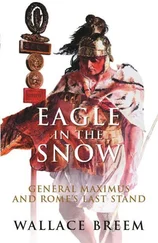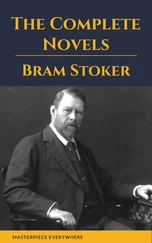I looked from Marcomir to Quintus. “That will give us sixteen thousand men on the east bank,” I said slowly. He knew what I was thinking. He said, “How would we get the legion across? Even foot soldiers in boats would take time; horses would take longer. Without cavalry it would be too great a risk. We would need a bridge and there is no bridge.” He looked at me and said deliberately, “But we could build one, of course.”
“No.”
Marcomir looked at us in turn. I think he sensed that all was not well between us. He said impatiently, “What is your plan then, if you do not intend to cross or cannot cross? Wait for ever till they make the first move?”
I said, “Be patient. For how much longer can they feed themselves in that huge camp? They are nearly a hundred thousand against our thirty. Even with the advantage of surprise our two thousand horsemen would be hardly enough to turn the balance. We should need more than luck to beat them in pitched battle.”
Marcomir scratched his beard. “It is the only chance you will have to attack them. Do you rather wish it that they should attack you?”
Quintus said, “Battles are rarely won on the defensive.”
“It is a great risk,” I said. “Let Goar’s men join us first. I want no paper armies, like other generals. Let them weaken themselves further; it will be to our advantage. We have time on our side.”
“But—”
“No,” I said. “If we lose all, on one throw of the dice, then Gaul is theirs. No more armies will stand in their way.”
Quintus said, “What we need is a strong wind in the right direction. Then we might burn their camp. I think that fire is the only thing that will destroy them without risk to ourselves. Fire knows no fear.”
I ignored the jibe. “Fire or hunger,” I said curtly, and we left the matter as it stood.
Marcomir’s wedding took place in the berg of Guntiarus on a hot day, and the whole area was packed with people. It was as though every Burgundian, east of the Rhenus, was determined to be present at the ceremony. The women wore their finery, and the men their best clothes. The daughter of Rando was there, somewhere, a prisoner in one of the huts, and I told Marcomir she would be better in my hands. I would need her as a bargaining counter—if it ever came to bargaining again. He agreed, readily enough. “She is of no more interest to me now,” he said cheerfully. His mind was full of the wedding; it was not a time for interest in slave girls. I was tired and I remembered little of it all afterwards except as the memory of a dream I had once been part of.
In the King’s Hall I found Marcomir with his arm round an elderly man with a battered face, broken and scarred by years of battle. “This is Fredegar,” he said. “He was my father’s servant and friend, and he taught me to ride and to be a warrior. He has been my sword-brother all my life, and I listen to him because he is wise.”
Fredegar smiled grimly. “I talk and you listen. That is so.” He put his hand on my arm and it was the hardest hand I had ever felt. “I give him advice, oh yes, and he does the opposite. That is how it goes with the young.” He had a hoarse voice and I had difficulty, at times, in understanding him. He spoke in looks rather than words and had the cold blue eyes of his people. He was, I noticed, held in great respect by many Burgundians as well as Franks and had been a great fighter in his time. He was a man to like or be afraid of.
The wedding began with a complicated ceremony of present giving and we all sweated in the heat of the Hall while the girl and the man exchanged gifts, and their relatives examined them and argued about them interminably. Fredegar said, “It is our custom, you see. The husband brings a dower; those oxen outside in the pen, and the horses. The number was fixed a long while ago. Now he gives her a bridle made by our best craftsmen—see how beautiful it is—and a shield and a spear. They are his but he gives them to her. And she—watch now—offers him armour; a helmet and breast-plate that her father has had made.”
“Why?” I asked, puzzled.
“It is a sign.” He grunted and pulled at his beard. “It signifies that they share the same work, the same happiness and the same danger. Listen, Guntiraus speaks the words.”
A sudden silence fell and the king spoke to his people across the held hands of the two who were to be married, his own hand on theirs, the other uplifted, as though administering an oath. “Let it be done,” he cried. “By our custom and by our sacred way are you joined. Let your fates be the same, in peace as in war. So must you live; and so must you die.” There was a roar from the Hall and the warriors stamped their feet and clashed their spears against their shields, while the women wailed once, in ritual mourning for the loss of one of their kind. Then food was brought and great barrels of sour beer, and jugs of wine, and the long festival began. And then, Marcomir and the girl—she was very young, very proud and very serious—were married in the open by a priest who spoke my tongue, and there was a great silence while the words were said. Afterwards, there was a second ceremony in the woods, this time to propitiate the gods of the faith they had abandoned, but which, in their hearts, many still revered. Then there was a great feast at which everyone ate too much and drank too much beer, and oaths of friendship were sworn, and the roofed hall, in the centre of which a great fire blazed, rang with the noise of laughter and talk. In the cool of the evening, we stood by the stockade gates and watched Marcomir ride off to his land with the girl on the saddle in front of him, a white wreath in her hair, and the men of his bodyguard all about him. Everyone was happy and contented, and it was as though the Alemanni and the Vandals were people of no importance. The girl (it was the one who had spilt my drink that day) smiled, Fredegar nodded briefly, and then they were gone. For a flickering moment or two I remembered my own wedding so many years before; but I quickly dismissed it from my mind. I glanced at Quintus and saw him watching me, curiously. I said nothing and we turned and went back to the Hall; and the silence between us was a wall that we could not cross.
In the morning I said my farewells to Guntiarus, the king. As I mounted my horse, I glanced back for a moment. The prisoner was sitting on a horse between two guards. Her bare feet were roped beneath the horse’s belly, and her hands tied behind her back. She was a bedraggled looking creature, not much improved by a gag of some dirty cloth which concealed the lower part of her face. She stared at me with sullen hatred.
“Is that necessary?” I asked, pointing at the gag. I could see that it had been tied tightly, so that it cut into her flesh.
“Yes, sir. She’ll scream her head off, given half the chance. And they may be out looking for her. She’s tried to escape twice already.”
“Very well. If she tries again I shall hold you responsible.”
We rode off and I returned to my forts and my problems. For us there was no rest and little relief.
On the west bank nothing had changed. The soldiers still worked at their duties by day; building the palisade, digging ditches and improving the defences of the forts. The armoury was filled to overflowing with carefully made arrows and throwing spears, and the armourers grumbled at my insistence that we must have more and more—and still more. Each day the sun blazed in an unclouded sky, and our stock of drinking water had to be rationed, for the waters of the Rhenus were not safe in summer and men, before this, had died of fever after bathing and drinking there. The young cygnets that we had watched in the spring, paddling on the water, had grown large and were a darker colour now. Soon they would change altogether and be as white as their parents, who hissed angrily still, each time I threw bread to their inquisitive young. Quintus was fond of roast swan but these we did not take and eat. They had become our mascots and, like the soldiers, we believed that so long as they stayed they would bring us luck. And, all the while, the sentries patrolled the river bank in groups, stood in pairs upon the towers, leaning upon their spears, or tramped the firing platforms, wrapped in their thick cloaks (it was cold at night) and kept a soldier’s watch upon the dark, swirling waters of the Rhenus.
Читать дальше












